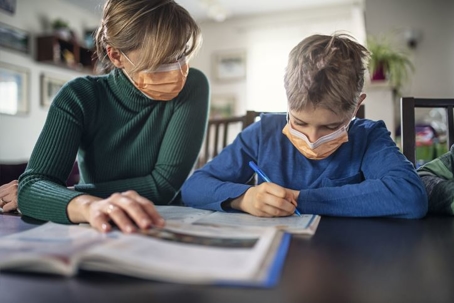You may have noticed the amount of dust in your home, with the increased time spent inside due to COVID-19.
Dust is one of many factors of your indoor air quality. We understand you may have many questions about your indoor air quality, we are here to help!
Why?
Why should I care about my indoor air quality?
According to the Environmental Protection Agency, the levels of indoor air pollutants are often 2 to 5 times higher than outdoor levels.
We spend so much time indoors that harmful levels of dust, mold, pollen, chemicals, viruses, and more can have significant immediate or delayed effects on your health.
Should I get my air ducts cleaned?
There is substantial visual evidence that mold growth is common inside air ducts and on other metal components of your HVAC systems.
Although duct cleaning may not be proven to prevent health problems, it can help reduce dust, mold, and other substances that may be lingering in your air ducts.
What?
What is a MERV rating?
When an HVAC technician visits your home, you may hear them talk about a MERV rating. This is the Minimum Efficiency Reporting Value. It is the report of an air filter’s ability to capture particles.
This is helpful when comparing the performance of filters. The higher the MERV rating, the more particles the filter will catch.
MERV is measured in microns. It is a unit of measurement to describe tiny things. In comparison, it is 0.000039 of an inch.
What can affect my indoor air quality?
There are many different factors that can affect the quality of your indoor air.
If you have, dusty vents, mold growth, or unpleasant odors, that may be a sign of poor air quality.
Some factors that can affect your air quality include:
Chemicals, often from cleaning products
Amount of ventilation in your home
Humidity levels in your home
HVAC issues
Presence of dust, mold, and bacteria
How?
How can I improve my indoor air quality?
Your indoor air quality can be improved by weekly cleaning and cleanliness of your home, along with professional air quality services, such as:
Air duct cleaning
Humidifiers and dehumidifiers
Air filters and high-efficiency filters
UV light air sterilization services
How can I protect my IAQ in an apartment?
These include:
eliminating or controlling the sources of pollution
increasing ventilation
installing air cleaning devices
Improving your air quality by any special device may be the building owner’s job, but you can increase ventilation by opening windows or doors to bring in the fresh air and help circulate the polluted air out of your space.
How often should I change my air filter?
Your air filter captures particles prior to entering the rooms in your home. It is important to replace it once it becomes dirty, so you can ensure its effectiveness. Change your air filter approximately every 2-to-3 months.
Implement?
Do air cleaners kill viruses?
Air cleaners may reduce the number of particles in the room. It can reduce health effects by removing the small solid or liquid substances in the air.
Certain air cleaners are more effective than others. Consult a professional to help you find the best-suited solution for your home.
Do some plants help clean indoor air quality?
Plants can improve indoor air quality, but they will not do all the work. Certain plants help clear the air of low levels of bacteria.
, are experts within the Cranberry Township, Pennsylvania area and can provide top-notch assistance in indoor air quality and duct cleaning solutions. Call us at (724) 241-8698 for all your HVAC needs!

